
The Global Marketing Show, hosted by Wendy Pease at Rapport International, helps growth-minded marketers expand into international markets and boost multilingual lead generation and revenue. Each episode features experts from industries like medical devices, industrial manufacturing, consumer brands, government, and education sharing real-world lessons on how to go global the right way. Discover actionable strategies for translation, localization, transcreation, and cultural adaptation, plus insights on the technologies, workflows, and quality standards that drive global marketing success. Whether you manage global campaigns, oversee multilingual content, or lead international sales, this podcast is your guide to building a brand that connects across languages and cultures.
The Global Marketing Show, hosted by Wendy Pease at Rapport International, helps growth-minded marketers expand into international markets and boost multilingual lead generation and revenue. Each episode features experts from industries like medical devices, industrial manufacturing, consumer brands, government, and education sharing real-world lessons on how to go global the right way. Discover actionable strategies for translation, localization, transcreation, and cultural adaptation, plus insights on the technologies, workflows, and quality standards that drive global marketing success. Whether you manage global campaigns, oversee multilingual content, or lead international sales, this podcast is your guide to building a brand that connects across languages and cultures.
Episodes

Wednesday Oct 23, 2024
Exporting 5th Generation Farm Soybeans - Show #133
Wednesday Oct 23, 2024
Wednesday Oct 23, 2024
Robert (“Bob”) Sinner is President of SB&B Foods, the largest grower of “identity preserved (IP), non-GMO food-grade” soybeans in North Dakota. In this episode, Bob tells us how his family’s 5th generation farm identified a need for soybeans in Asia and how he pursued and won that business.
Bob’s father George served as governor of North Dakota from 1985 to 1992. During his tenure, George Sinner resolutely tried to attract Japanese investment into the state, which inspired Bob to help US companies export into Japan to develop relationships and accelerate the creation of new opportunities.
To start, Bob embarked upon a trade mission to Japan, alongside a hired interpreter. Once there, he found mature markets looking for a consistent and reliable supply of soy beans, the agricultural product needed to produce uniform product like tofu and soy milk.
At Rapport International, we encourage our clients to employ interpreters as “cultural conduits” – native-speaking interpreters are valuable sources of in-country information. In that vein, upon his return, Bob enlisted the help of North Dakota State University professor Dr. Sam Chang, originally from Taiwan, who had previous experience working with soybeans.
Together with a visiting Taiwanese trade team, the group conducted sensory testing, a scientific method for evaluating a food's characteristics – taste, texture, odor, and appearance, for example – to determine which product was of the highest quality. After their visit, the Taiwanese group donated the sensory testing equipment to the N. Dakota State University, which is still in use today!
SB&B is now operating in 16 countries, most of them within Asia because of the high per capita consumption of soybeans. Its customers manufacture over 25 different foods – including the Japanese “natto,” a healthy, fermented food that helps with heart and brain functioning.
Bob says their success is due simply to always paying attention to what the customers want and catering to those wants. The best marketing, he adds, is accomplished by:
- Being yourself
- Staying honest
- Treating people like you want to be treated
- Knowing your products
- Understanding local culture
- Building trusted relationships
His biggest, ongoing challenge involves shipping containers. Most containers coming into the US are 40 feet long and carry bulky yet lightweight consumer products into metropolitan areas.
Shipping heavy agricultural products from a rural area to Asia, where they prefer smaller containers, presents a twofold problem. First, containers are parked in US metro areas and require transport to rural areas. Second, the smaller containers Asian buyers want are closer to 20 feet long, half the size of standard containers, because they unload within smaller and tighter spaces. Bob continues to work with US and foreign officials to find solutions.
His best advice to new exporters:
- Understand the market
- Operate under a set of core values that include integrity, honesty, fairness, and trust
- Be patient yet persistent in building trust
- Keep educating yourself
- Reap the rewards!
Listen to the full episode to learn more.
Links
Email: Rsinner@SB-B.com
Website: https://sb-b.com/
LinkedIn: www.linkedin.com/in/bob-sinner-a058322a
Connect with Wendy - https://www.linkedin.com/in/wendypease/
Music: Fiddle-De-Dee by Shane Ivers - https://www.silvermansound.com

Wednesday Oct 09, 2024
Community and Innovation in Global AgTech - Show #132
Wednesday Oct 09, 2024
Wednesday Oct 09, 2024
Andrew Jason is Director of Ecosystems at Grand Farm in Fargo, North Dakota, which describes itself as “a collaborative network of growers, corporations, startups, educators, researchers, government, and investors working together to solve problems in agriculture through AgTech and innovation.” Gone are the days when farming was synonymous with the image of a forlorn couple, pitchfork in hand, à la Grant Wood's American Gothic.
In this episode, Jason explains how AI and innovation has inundated the farming industry as much as it has every other, spurring advancements in international agriculture, especially when it comes to sustainability, data collection, and the use of drones and robotics to increase efficiency and production.
Farming is also near and dear to the host, Wendy Pease, whose father was a professor of international agriculture at Penn State in the 1970s. Then, “high tech” meant setting up a computer to monitor her father’s potato research storage facility at Black Moshannon State Park in Pennsylvania. If the temperature dropped, for example, the computer called him at home to alert him. Late one night, Wendy sleepily received a phone call from an old-fashioned computer voice saying: “There is a power outage at the Potato Storage area,” which she found amazing!
Grand Farm sees vast potential in connecting global communities to share ideas and technologies, with the aim of advancing agriculture production. Of late, Andrew has seen a lot of development in AgTech out of Brazil, Ukraine, Europe, Australia, and Japan. In fact, Grand Farm recently announced a partnership with Fukaya City, Japan, whose Deep Valley Initiative is an AgTech thought leader. The collaboration marks a major step toward an international approach to innovation in agriculture.
Every partnership comes with its challenges, and Andrew shares the ones he’s discovered that are particular to international connections:
- Cultural balancing act: Integrating local cultural needs with Grand Farm's global vision proved tricky. It's a common tension in multinational ventures, yet it can be managed by enabling cross-functional teams to work together.
- Navigating time zones: Communication across time differences requires flexibility. Andrew often connects with Japanese partners around 10 p.m. Fargo time, after his kids are in bed. While they've explored asynchronous options like video messages and chat, sometimes a real-time conversation is necessary.
- Patience in partnership building: The Japanese collaboration took years to finalize. While there's often pressure for quick results in the US, many cultures prioritize building relationships and trust over time.
- Bridging language gaps: In-country contacts helped set up interpreters to facilitate communication. Andrew notes the importance of employing professional interpreters and translators, especially in Japan and other Asian countries.
- Finding support: It can be hard to know where to start. The North Dakota Trade Office provided invaluable advice and international introductions. Andrew recommends tapping into your local trade experts for guidance and other free resources.
Learn more about Grand Farm and their initiatives by listening to the full episode. And click here to donate to this worthy organization.
Links:
https://grandfarm.com/calendar/
Website: https://grandfarm.com/
LinkedIn: https://www.linkedin.com/company/grand-farm/
Connect with Wendy - https://www.linkedin.com/in/wendypease/
Connect with Jason - https://www.linkedin.com/in/andrew-jason-09755161/
Music: Fiddle-De-Dee by Shane Ivers - https://www.silvermansound.com

Wednesday Sep 18, 2024
Rapport Across Cultures - Show #131
Wednesday Sep 18, 2024
Wednesday Sep 18, 2024
Navigating cultural differences while building a company culture or consistent brand voice can be challenging, but it is not insurmountable, says Carole Copeland Thomas, a recent podcast guest on The Global Marketing Show (episode 131), especially with support from knowledgeable experts and a willingness to learn.
Carole is founder of C. Thomas & Associates, a full-service speaking, training, & consulting firm specializing in multiculturalism, diversity, and women’s issues (http://www.tellcarole.com/). In this episode, she outlines how culture – and cultural differences – affect relationships, and she provides real-world advice on successfully navigating and incorporating those differences into local and larger communities.
Carole has found that the definition of “culture” can be nebulous; when asked, we all instantly know what it means, but it’s hard to define. By her description, the concept encompasses the social norms, behaviors, knowledge, arts, beliefs, customs, and habits of a group of people. As an expert in diversity, equity, and inclusion (DEI) for over 40 years, she likes to explain it using the “Iceberg Model of Culture” developed by Edward T. Hall in 1976.
The top of the cultural iceberg stays visible to everyone. It contains the community’s fine arts, literature, music, food, games, and dress. People outside the culture see these superficial elements.
The bottom of the iceberg, the biggest part of any culture, hides beneath the surface and influences less quantifiable aspects like:
- Eye Contact: In the US, children learn the importance of direct eye contact whereas in Japan, children are taught the opposite, that direct eye contact is considered rude, aggressive, and disrespectful.
- Time: Some cultures are strict about time and others allow for more flexibility. In Germany and Denmark, for example, meetings start at the appointed time, yet in Japan and China, it’s customary to arrive 15 to 30 minutes early. In Latin American and Latin European countries, flexibility is more common.
- Personal Space: People have varying levels of comfort with touching, standing close together, and holding hands with friends. In North America people typically hold each other at “arm’s length,” while Europeans tend toward “wrist length” and those in the Middle East prefer “elbow length.”
- Gestures: In India, people will shake or “bobble” their head to mean “I hear you” or “I don’t know,” or to say “yes” or “no.” The closest conversational response in the US would be simply “hmmm.”
The examples above illustrate only a small number of all the cultural components that might affect company culture and co-worker relationships. Other areas of potential contention commonly include:
- Approaches to problem solving
- Notions of leadership
- Tempo of work
- Patterns of group decision-making
- Status mobility
- Ideas about logic and validity
- Conversational patterns
Typically, people understand their own cultural norms yet underestimate how much cultural differences can affect relationships. Listen to the full episode for additional details on these real-world culture-clash situations Carole has managed.
In one instance, a client company’s employee hailed from an island in the Caribbean where non-intimate physical contact was acceptable in the workplace, among all genders. Issues arose when others misconstrued the behavior as inappropriate. By helping the team understand the employee’s cultural context and setting clear expectations, Carole was able to restore respectful, solid working relationships and a unified company culture.
In another instance, a young manager was hired to lead a team of about 25 people, including a dozen employees older than the new hire. Unbeknownst to the new manager, the older Black members of the team expected the manager to address them as “Mr.” or “Ms.” to show respect for the age difference. Resentment within the team grew, until Carole and the manager uncovered the issue and found appropriate ways for the manager to address the workers. As Carole puts it: in some cultures, age commands respect and in others, it’s about one’s status or position. Navigating through this can be difficult.
And even with her expertise in cultural issues, Carole has encountered cultural challenges in her personal life. When she became a grandmother, she wanted a special name instead of being called "grandma" like her mother. Since she frequently travels to Kenya, Carole decided she liked “nyanya,” Swahili for “grandma.” Only after years of her granddaughters calling her nyanya did she learn that the familiar name for grandma in Swahili is actually “bibi.” Throughout, her granddaughters were actually using the formal term for "grandmother,” which is also Swahili for "tomato"!
Solutions
In every cross-cultural situation, Carole first aims to build rapport and alignment. She assesses the manager’s awareness and willingness to improve relationships and if she can work with the individual, she collaborates with them to enhance the team, starting with fundamentals such as:
- Developing rapport individually with each team member. That doesn’t mean “getting into that person’s business”; she simply finds it beneficial to get to know each person on an individual and professional basis. Carole recommends scheduling time with people for coffee, lunch, or a conversation, with no set agenda. Even if there are 40 people on the team, it is always worth the time to meet with each person.
- Reflecting upon the strengths and weaknesses of the team to understand what people contribute. Consider creating a SWOT analysis of personalities to get a bigger picture of the group’s dynamics.
- Communicating the vision that rallies the team to work together toward shared goals. A shared vision unites people as they focus on achievements together, depend on each other for diverse contributions, and celebrate as they reach milestones.
Ultimately, Carole’s best advice for working cross-culturally starts with you:
- Learn about your own culture. Raise your awareness about your native culture. We aren’t often aware of the way we do things naturally, without thinking, and how those instincts impact the ways in which we approach every situation. Culture is most invisible to its own participants – just consider any stand-up comedian’s material about “Americans”!
- Keep trying. Network with others to keep learning. Contact colleagues, ask for introductions at local embassies, companies, or associations to get tips about cultural differences and how to navigate them. Interpreters are a great resource for facilitating conversations and often serve as a cultural conduit to assist with communication beyond words, in real-time.
- Ask for forgiveness! Reach out, engage, and try, try again. People readily forgive mistakes made by anyone who is friendly and curious.
Carole’s experiences are real-world proof that these strategies work to bridge cultural divides and build thriving, cohesive teams and communities. Listen to the full episode for even more excellent advice!
Links:
Website: www.CaroleCopelandThomas.com
LinkedIn: https://www.linkedin.com/in/carolecopelandthomas/
Iceberg Model of Culture: https://bccie.bc.ca/wp-content/uploads/2020/09/cultural-iceberg.pdf
Connect with Wendy - https://www.linkedin.com/in/wendypease/
Music: Fiddle-De-Dee by Shane Ivers - https://www.silvermansound.com
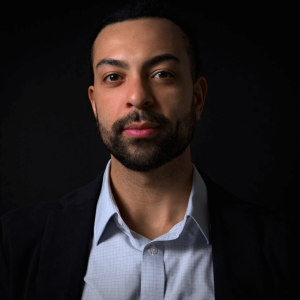
Wednesday Aug 07, 2024
Regulatory Advice for MedTech - Show #130
Wednesday Aug 07, 2024
Wednesday Aug 07, 2024
Issa Kildani is the founder of Ambrosia Ventures, a life sciences consultancy that provides strategic, regulatory, and quality compliance solutions. He’s consulted with pharma giants, yet over the last 10 years has used his experience to guide startups and small companies toward global market entry with his project management, quality assurance, and regulatory affairs expertise.
In this episode, Issa describes taking M Biologics, a pharma company with a manuka honey-based pet pain reliever, into Canada and Brazil. He advises early-stage companies to evaluate global markets and competitors to determine a way to stand out from competitors. Because Michigan is geographically close to Canada, for example, expansion into Brazil instead might be a better strategy. And always validate the market research, even if it’s your own.
Interestingly, studies show that CEOs that speak other languages or come from other countries are more likely to export. And M Biologics is a case in point – its CEO, born and raised in Egypt, was Issa’s college classmate!
Building blocks for quality and regulatory requirements
For early startups every endeavor must be cost-effective, so Issa has created a regulatory strategy with built-in cost savings. His approach is to streamline and standardize international regulations to reduce redundancies: “instead of doing several independent audits we clump them together methodically,” he says, which in the end saves cost while acquiring customer brand trust, limiting liability, and standing out from the competition.
Issa describes the European Medicines Agency (EMA) as the “international gold standard” for regulatory framework; their requirements are the most stringent and control quality, safety, and efficacy of a device throughout the product lifecycle.
“How I like to approach this, aside from the market credibility of getting the ISO 13485 certificate,” says Issa, “is to take advantage of expanding past that by aligning it with other international standards.” Depending on a company’s maturity, Issa will determine whether to take a risk management approach using ISO 14971, adopt a more stringent European MDR/IVDR strategy, or incorporate WHO requirements for less regulated markets.
Issa adds that pinpointing initial markets provides a roadmap for meeting regulatory requirements, which leads to a more comprehensive audit. The process ultimately positions the brand as a serious player in the industry while “enhancing credibility and attractiveness to eventual strategic partners and global distributors.”
It’s a key differentiator, according to Issa, unlike the common pitfall of starting with less-regulated markets, which “doesn’t help in terms of establishing consumer trust, or even brand reputation.”
Similarly, approach global marketing from a position of solid regulatory compliance to “signal a commitment to quality and safety.” Messaging should emphasize:
- Rigorous compliance. A track record of successful compliance boosts a company’s reputation.
- Consistent interaction with regulatory bodies. Open lines of communication fosters trust with consumers, creating loyalty.
The goal is to create messaging with a global eye view, which then makes adherence to ISO standards for translation that much easier.
“Translation is its own beast,” Issa says. He relies on study groups that mirror target populations to ensure that messaging is “global friendly” – messaging used in the US should resonate in Brazil and the EU, for example. Generative AI can be helpful for gist translations, Issa says, but “there are certain words that aren’t easily translatable, and AI won’t register that.” So always consult with an expert to ensure accuracy.
Issa speaks four languages! His favorite word, among the lexicons of English, Spanish, Arabic, and Jamaican Patois is “na’eeman,” an expression generally used to denote cleanliness – “I just had a shower, na’eeman” or “I just got a haircut, na’eeman” – but can also stand in for other, unrelated situations, like “I’m late for a meeting, na’eeman.”
“There isn’t a real definition or description, that’s why I love it so much,” he says, “you can just use it and input it in so many different instances, for ‘that sounds right’ or ‘that makes sense’.” Call it the “lah” of Singapore or the Hawaiian “da kine” – IFKYK!
Links:
Website: www.ambrosiaventures.co
LinkedIn: https://www.linkedin.com/in/ikildani/
Connect with Wendy - https://www.linkedin.com/in/wendypease/
Music: Fiddle-De-Dee by Shane Ivers - https://www.silvermansound.com
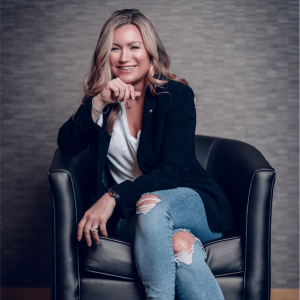
Wednesday Jul 10, 2024
Pediatric Med Device Goes Global - Show #129
Wednesday Jul 10, 2024
Wednesday Jul 10, 2024
Christy Brown is CEO of Dr. Noze Best, an innovative pediatric healthcare company committed to bringing hospital-grade respiratory devices into the home. After only two years with the company, Christy already has a plan to launch their direct-to-consumer medical device in 10 countries. She’s a mover and shaker!
The company’s mission is to make sure that every child can breathe – and for parents to feel “confident and supported” when caring for their child’s health. Current offerings include nasal aspirators and accessories, and a full product line designed to help children breathe better is also in development.
To launch globally with purpose and intention, the Dr. Noze Best team developed a proprietary tool – the “Complexity Calculator.” The Calculator measures various elements that could affect a product launch in a new country – population and birth rates, economics, legal frameworks, regulatory requirements, and logistics, for example – so the team could prioritize the countries by opportunity and ease of doing business.
At the outset, Christy describes feeling “isolated” by her lack of connections in global trade – she didn’t know who to turn to for advice and guidance, or how to find partners. A fortuitous post on an Entrepreneurs’ Organization (EO) WhatsApp chat group connected us – my brother Scott suggested Christy reach out to me.
Thereafter, the company worked with the US Commercial Service (USCS) in Atlanta to make connections in their initial target countries. Christy raves about the services they received from both USCS Atlanta and the Georgia Department of Economic Development (GDEcD). With assistance from both agencies, Christy connected with consulates within initial target countries to acquire valuable information about how to enter local markets.
There will be challenges along the way, Christy says. Her team struggled to meet projections when faced with unanticipated and uncontrollable issues and with setting up direct-to-market shipping from their Asian manufacturer, finding capable distributors, and steering the medical device through the various regulatory bodies.
Regardless, her first and best advice for others starting the export journey is simple: “Do it!” Once you do:
- Have patience: it can take time for success.
- Build a good team: you are only as good as your team.
- Stay tenacious.
- Find your resources: agencies like the USCS, GDEcD, District Export Councils, and Chambers of Commerce can direct you to meaningful services, support, and in-country connections.
Christy’s favorite foreign word is “bonjour”! It’s a welcome “hello” in France and other French-speaking countries, she says, and to share the joy in Atlanta she’s localized the phrase to “bonjour y’all”!
Links:
Website: www.drnozebest.com
LinkedIn: https://www.linkedin.com/in/christy-brown-a54aa0/
Connect with Wendy - https://www.linkedin.com/in/wendypease/
Music: Fiddle-De-Dee by Shane Ivers - https://www.silvermansound.com

Wednesday Jun 05, 2024
Multinational Diagnostics - Show #128
Wednesday Jun 05, 2024
Wednesday Jun 05, 2024
Steve Becker is committed to improving human health by unlocking the power of molecular diagnostics. In the world of medical devices and diagnostics, you might think the latter falls under the purview of the former, says Steve, yet: “from a regulatory standpoint, diagnostics is covered by a lot of the medical device rules.”
Unlike medical devices like implants, however, “diagnostics is really the ability to measure your body, whether you’re healthy or sick; and if you are sick, what’s making you sick. Helping to uncover your health status and what you can do to improve is really the heart of diagnostics.”
In this episode, Steve shares the lasting lessons learned during his stints at Thermo Fisher, Quest Diagnostics, Agilent, and GE Healthcare, where he directed sales, global marketing, business development, and licensing. Learn how to navigate within a constantly changing healthcare business landscape, from the first steps toward launch to the regulatory requirements and cultural differences that can affect development, distribution, and product adoption.
Going to market on one’s own is a big task, says Steve – find the right partners to mitigate the commercial regulatory tasks and technical risks. Ultimately, the company whose name is on the product assumes the liability – “they’re the ones on the hook” – but relying on specialists along the way improves your chances of a streamlined launch.
During his tenure at Quest Diagnostics, the company built a “global diagnostics network,” pooling the capabilities, diagnostics insights, samples, testing and sharing of leading companies into one place. In the end, Quest brought the first Zika test to market, reliant upon colleagues.
In fact, choosing your initial target audiences can come into play even during development, as “diseases become more localized and companies are made for those markets,” Steve adds. Pay attention to “how to get paid for what you do,” your reimbursement strategy. In diagnostics, for example, ask yourself:
- Is it going to measure what we say it’s going to measure? (Analytic or clinical validity)
- Can we do anything with the information? (Utility)
Interestingly, reimbursement can often become political; for example, in the US it’s widely accepted that breast cancer can come with a genetic indicator (the BRCA gene) – and the patient can take prophylactic steps or opt for watchful waiting. In contrast, Steve says that:
In a single-payer system, if you were 49 you could take the [BRCA] test; if 50, no test. The calculation includes risk, quality of life, total cost – someone makes a decision, snapped the line, and that’s where it landed.
Add to that differences stemming from culture and tradition, and it makes sense to work with local, in-country partners to navigate your go-to-market strategy, especially with regard to regulatory requirements.
To date, Steve says that European companies would often launch first domestically and then in the US because it was easier, but that’s starting to change as the EU changes its regulatory stance.
Regulations are stricter now in Europe, with liability going as far back as the manufacturer – for translation quality, for example. Diagnostic tests are now treated more like a medical device, including review by regulatory bodies, etc. – it’s a lot more work but it’s a good thing.
Think globally but act locally, Steve adds. You may use the same assay (investigative procedure for qualitatively or quantitatively measuring the presence, amount, or functional activity of an element) as in the US but a local company can handle the technology, packaging, regulatory requirements, approvals, and clinical evidence and market under THEIR brand, with their own branding and local language. This happens consistently, across IV diagnostic companies – Abbott, Siemens, Roche, Thermo Fisher – and all of them have to treat each of their launches “locally,” working with in-country regulatory bodies to get approvals.
And vice versa: one of the first Covid tests distributed in the US was manufactured by a Korean company but marketed as a known American brand. In fact, working with companies around the world has interesting and complex effects on branding – “you’ll get a multi-national brand but lose some efficiencies,” according to Steve.
In the end, Steve’s advice is ever so simple: “You don’t want to take risks in the healthcare world.”
Links:
LinkedIn: https://www.linkedin.com/in/stevebecker/
Connect with Wendy - https://www.linkedin.com/in/wendypease/
Music: Fiddle-De-Dee by Shane Ivers - https://www.silvermansound.com
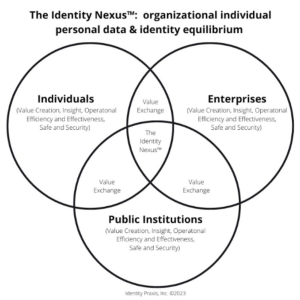
Wednesday May 08, 2024
Talking Translation with Michael Becker of Identity Praxis - Show #127
Wednesday May 08, 2024
Wednesday May 08, 2024
Rapport International President and Owner Wendy Pease was a recent guest on Michael Becker’s Identity Praxis podcast. Michael is a strategic advisor to Fortune 500s, startups, and non-profits worldwide, with a focus on global marketing and product, new market, and business development. In this episode they discuss the importance of translation and interpretation in this interconnected world.
Translation can be traced back to the Rosetta stone, considered the first written translation in history and the key to deciphering Egyptian hieroglyphs dating as far back as 196 B.C.E. Things got interesting with the introduction of machines, explains Wendy, especially at the advent of WWII and codebreaking and spying. All of it was word-for-word translation, which didn’t work then and still doesn’t today, she adds. Even adding grammar rules and machine intelligence leaves us with problematic options like Google Translate and ChatGPT.
Think about it: “language is a very dynamic, living thing,” Wendy explains. We’re from New England and California and that’s reflected in our speech patterns, word choices, cultural bents – let alone adding in different languages…. And even large, well-known brands with human translators run into issues; just look up Electrolux, Got Milk?, or Braniff Airlines.
To do it right in this world we can’t continue to do everything manually but we need to do it right. Michael asks: “Can we build IP along the way and elevate our community, too?”
The solution, according to Wendy, is to leverage translation technologies – proven ones that exist today as well as those emerging daily – only under the guidance of a “detail-oriented, qualified, professional linguist with subject matter expertise.”
The efficacy of translation technologies also depends on project requirements – TripAdvisor can use translation memory for certain standardized, repetitive content, for example, like room descriptions and amenities. A large retailer necessarily has more detailed requirements – a handbag to one person is also a purse, pocketbook, satchel, clutch, etc.
As such, large conglomerates are attempting to create IP in the form of customized large language models (LLMs), Wendy adds, not only for increased efficiency but because common options like ChatGPT and Gemini incorporate faulty Google Translate content, Internet disinformation, and even false content in the form of hallucinations.
In fact, the world changes so vastly, and so quickly, that even fundamental services like translation – for the written word – and interpretation – for the spoken word – are now intermingled in the form of live chat, says Wendy. Unlike chatbots and AI chats that rely on translation, translator-interpreters are facilitating a real-time conversation in the written format. In that light, guest and host agree that the future of computer-aided translation is clearly promising, and it’s simply beneficial to proceed with caution.
Links:
Website: Identity Praxis, Inc.
LinkedIn: https://www.linkedin.com/in/privacyshaman/
Tinderbox: https://www.youtube.com/playlist?list=PL6MVDtSfcKxd2XLpenMAd9H4VknDyn6oz
Connect with Wendy - https://www.linkedin.com/in/wendypease/
Connect with Michael - https://www.linkedin.com/in/privacyshaman/
Music: Fiddle-De-Dee by Shane Ivers - https://www.silvermansound.com
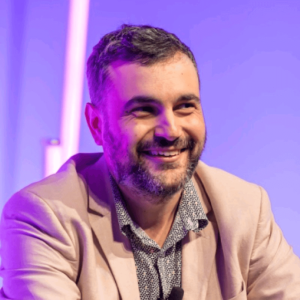
Wednesday Mar 13, 2024
Global UX and Engagement - Show #126
Wednesday Mar 13, 2024
Wednesday Mar 13, 2024
Waseem Kawaf has built over 400 websites and is an expert in global user experience (UX). He’s currently the co-founder of Seicho Syndicate, where he and his partners design and develop great user experiences for their clients.
Prior to Seicho, Waseem served as Global VP of Digital Experience for Stanley Black & Decker and worked in marketing agency roles.
“Seicho” means exponential growth in Japanese, says Waseem, and his company is aptly named. When prospects and clients have good user experiences throughout their journeys, they stay longer and generate more revenue.
UX optimization can be a daunting prospect for companies of any size –Waseem suggests breaking the project up into small steps, to gain insight into your users. Pick data from the call center, chat, trade shows, or your website to analyze and build the “voice” of the customer.
The goal should be to keep every interaction “simple, connected, and frictionless,” he advises. “And rather than starting UX strategy meetings with brainstorming, try an ‘Outside-In’ philosophy instead, which works from the customer’s perspective and gives clear direction for your initial moves, an important lesson he learned while earning an MBA from MIT.
Throughout his career, Waseem has worked in the global arena. That broad experience made it clear to him that companies must consider local markets – not all users around the world consume information, interact, or buy the same way. By taking a collaborative approach rather than an authoritative one, teams can take all users into account. It may take longer but will lead to greater success.
And in the end, the Pareto principal will apply – 80% of the work can be globalized and 20% localized. The Stanley Black & Decker team created content in English and then translated any material deemed important or helpful into local languages.
Waseem’s best advice: “Stay hungry and humble. Develop your emotional intelligence, stay curious, and respect the ‘Power of WE.’ Consider yourself the stirrer in a lovely drink – by bringing all the different tastes and flavors together, you create a magical experience.”
Links:
Website: https://seichosyndicate.com/
LinkedIn: https://www.linkedin.com/in/kawaf/
Connect with Wendy - https://www.linkedin.com/in/wendypease/
Music: Fiddle-De-Dee by Shane Ivers - https://www.silvermansound.com

Wednesday Feb 21, 2024
Think Big! - Show #125
Wednesday Feb 21, 2024
Wednesday Feb 21, 2024
Ivo Verhaegh, founder of Powerhouse AI, came to entrepreneurship through an interesting path. He knew he wanted to start a company, work with a co-founder, and live abroad from his home country, the Netherlands. Since he didn’t have an idea for a business and couldn’t find a co-founder on the same timeline for starting a business, he applied to a program called Entrepreneur First. The organization screens hundreds of applicants, accepting only 1% of the people who apply; a group of 80 are ultimately accepted and work with each other to find co-founders. Venture capitalists sponsor the Entrepreneur First program, through which they find viable businesses with co-founders that click, elevate each other and the business, and are productive.
While in the program, Ivo met his co-founder (and now Powerhouse AI’s Chief Technology Officer) Kushal Pillay – together they worked toward an affordable and manageable robot-driven warehouse environment.
Ultimately, they created an app that automates the counting and checking of inventory and pallets in warehouse storage, maximizing productivity. Since the launch, they’ve won clients including DHL, Unilever, and numerous logistics companies.
Funded and guided by investors, Ivo and Kushal were encouraged to think BIG and globally from the start. Being based in Singapore, which has a small domestic market, they assumed they would sell into Southeast Asia. Market research showed, however, that labor is plentiful and inexpensive in the region, so warehouse operations were satisfactory as-is, unlike in the US, which embraced the technology.
Currently, Powerhouse AI offers its technology solely in English, but will soon translate for their Spanish, Chinese, Malay, and Hindu target markets. Ivo understands how important translation is and that Google Translate or AI are unreliable, so he plans on using professional translators.
Some of the bumps in the road Ivo met along the way include:
- Not understanding the southeast Asian market well enough from the start took time away from early success.
- Not focusing on specific industries or geographies with targeted messaging slowed sales success.
- Not having in-person meetings with certain clients slowed the closing of sales. The logistics industry is traditional and prefers face-to-face meetings.
Currently, the company’s ideal client has over 100,000 square feet of warehousing space and requires precision in inventory management, making Powerhouse AI a clear fit for companies in the healthcare, pharmaceutical, consumer product, and automotive industries.
Ivo’s best advice:
- Think Big – surround yourself with other entrepreneurs to open your eyes to possibilities.
- Build a Superstar Team – hire people that are ambitious, curious, accountable, responsible, and knowledgeable.
Ivo’s two favorite foreign words are good ones:
- “Bolleboos” – a Dutch word that literally translates to “bright hat” and refers to a “smart person.”
- “Introspective” – an English word that represents “the superpower of knowing yourself.”
Ivo certainly represents both of those words! Engaging, creative, smart, driven and very self-aware, he is a podcast guest to remember!
Links:
Website: https://www.powerhouseai.com/
LinkedIn: https://www.linkedin.com/in/ivoverhaegh/
Connect with Wendy - https://www.linkedin.com/in/wendypease/
Music: Fiddle-De-Dee by Shane Ivers - https://www.silvermansound.com
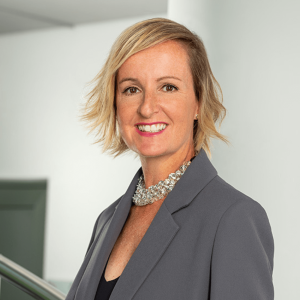
Wednesday Jan 31, 2024
Unify Global Marketing and Succeed - Show #124
Wednesday Jan 31, 2024
Wednesday Jan 31, 2024
Liz Fendt is Global Chief Marketing Director of TÜV SÜD, which specializes in testing, certification, auditing, and advisory services for different industries. There exist only 10 major players in the compliance industry, which ensures safe practices around both goods and services.
As an example, think about airport safety. Proper testing, inspection, and certification means the airport management company must connect all relevant suppliers and vendors – elevator companies, airway manufacturers, builders, and countless other stakeholders – with quality managers to meet and guarantee compliance with safety standards.
Prior to her current role, Liz worked in communications and sales and marketing at TÜV SÜD, with a focus on local, regionalized marketing. Inspiration struck the day she analyzed existing collateral and recognized a critical lack of uniformity in marketing materials for the company’s global markets; the difference in colors, branding, messaging, and myriad other content and design elements pointed at once to the inefficiencies of duplicated efforts and a missed opportunity for global branding.
Senior management agreed and, in that way, Liz created her own Global Chief Marketing Director role, with the goal of increased efficiencies based on a unified corporate global marketing effort and a cohesive international team.
At the start, Liz worked with 120 associates to develop consistent processes and brand/style guidelines. She envisioned the company’s German headquarters as the hub of her global marketing team, with satellite offices as its spokes, deliberately building teams that could move along those spokes, simultaneously integrating her team and realizing larger corporate strategies.
A second hub in Singapore followed and Liz saw opportunity there, too – as one global marketing campaign wound down, the next would begin. The fabric supporting every effort: people. She built her teams by elevating associates from within, and with intention and according to detailed specialty – pay-per-click, social media, website, document management systems – no associate, role, or team was overlooked, resulting in talented and diverse representation within each group.
Liz’s advice on developing global teams with high retention rates: look for people with a positive outlook that like to solve problems. Two associates who started as interns are now heading global teams – if it’s a complex industry get them in and train them so that they can progress. Energized, excited people with a can-do attitude will thrive with support, contributing new ideas and fostering a healthy work environment.
With that approach, in the first five years and with the same budget, the global marketing team increased leads via the on-hand readiness of standardized, culturally appropriate, marketing “in a box.” Content and campaigns could be used globally, and Liz also consolidated the company’s website, from 7-10 countries with 42 separate sites to a single, unified one.
Lessons Learned
Throughout her career, Liz has always turned to her team for inspiration and new ideas. Her best advice is to always do business with a growth mindset, and to keep networking – even with people in different fields and industries – because you will always benefit from expertise and diversity of thought.
The TÜV SÜD community of experts spans the globe, and in 2016, Liz co-founded the Global TÜV SÜD Women's Network – a 1000+ strong network of women across the company, to support and nurture global and local networking, professional mentoring, and role model programs.
Other lessons learned:
- One size doesn’t fit all: global marketing for campaigns “in a box,” requires a different mix for different markets. Some audiences want white papers while others value human, face-to-face interaction.
- Start small: at the start, the company’s largest website was the German one – after starting with that site Liz realized that you should first make sure technology challenges are ironed out, something more easily done in a smaller market.
- Stay connected with customers and employees: Provide a seamless customer journey by understanding how each department affects the customer experience, and that personas come with variables. Similarly, gather your team periodically for all-hands meetings and marketing sessions and provide channels through which to share information.
Liz adds that technology-driven companies tend to underestimate the value garnered from sales and marketing. A unified global strategy reaps greater benefits when viewed as a “general business propellant” rather than an afterthought. Other common challenges may include:
- Technology: it’s hard to find tools and IT components for an already robust marketing tech stack.
- Finding good service providers: Companies will often claim “global influence” but in effect have only regional coverage and loose partnership and affiliations. One-stop solutions are hard to find.
Today, Liz’s 120-person marketing team is a global marketing operation equipped with the supports and material to enter any new market. Listen and learn from a global marketing expert!
Links:
Travel photography - https://www.instagram.com/liz_fendt/?hl=en
Website: https://www.tuvsud.com/en
Company LinkedIn: https://www.linkedin.com/company/tuvsud/
LinkedIn: https://www.linkedin.com/in/lizfendt/?originalSubdomain=de
Connect with Wendy - https://www.linkedin.com/in/wendypease/
Music: Fiddle-De-Dee by Shane Ivers - https://www.silvermansound.com
